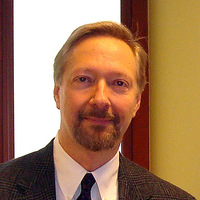
Nicolai Petro
My research focuses on the role that religion, history, culture, and symbols play in democratic development.
Address: Department of Political Science
Washburn Hall
University of Rhode Island
Kingston, RI 02881 (USA)
Address: Department of Political Science
Washburn Hall
University of Rhode Island
Kingston, RI 02881 (USA)
less
Related Authors
Muqtedar Khan
University of Delaware
Andreas Umland
National University of "Kyiv-Mohyla Academy"
Igor Casu
State University of Moldova
Armando Salvatore
McGill University
Oxana Shevel
Tufts University
Benjamin Isakhan
Deakin University
Cristiana Facchini
Università di Bologna
Marek Tamm
Tallinn University
Armando Marques-Guedes
UNL - New University of Lisbon
Vera Shevzov
Smith College
InterestsView All (26)
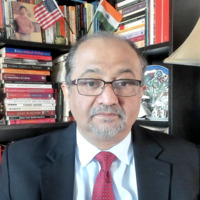

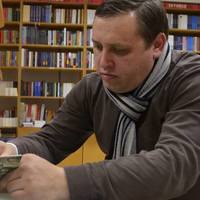

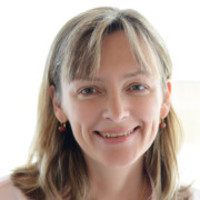

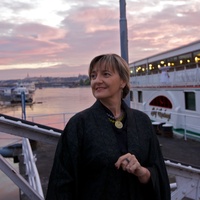


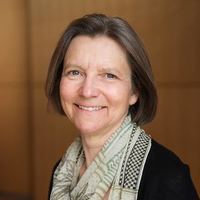
Uploads
Books by Nicolai Petro
Although the Church plays a subordinate role in this relationship, it is far from being merely the Kremlin’s puppet. By decentering the nation, this investigation seeks to shed light on the Church’s distinct approach to politics, and show where it draws the line on cooperation with civil authorities. Only by viewing the ROC as an autonomous political and eschatological actor, will we be able to appreciate how it influences Russian foreign policy.
Nicolai N. Petro attempts to explain the Novgorod phenomenon by seeking answers at the regional level. Novgorod is, he finds, a model of effective democratic consolidation. Petro suggests that the region owes its unexpected recent success to its political elites, who have identified key cultural symbols and used those symbols to promote democratic development. Drawing on comparisons with other regions and countries, Petro finds that these cultural tactics often yield better results than do Western-style institutions and educational training programs.
Current efforts to promote democracy focus too much on structural changes and not enough on the conditions needed to sustain them, Petro writes. For the rule of law, free markets, and free and fair elections to gain broad public support, they must first make sense within the local cultural tradition. The unexpected success of regional democratic development in a country not known for its democratic traditions suggests that local governments can transform the burden of the past into an ally of change, a finding with implications for democratic development initiatives in other areas of the world.
Expanding the traditional definition of political culture from single thread to continuous historical tapestry, Petro illuminates a reality previously lost to even the most rigorous Sovietology: the fragility of communism. He portrays an abiding "alternative political culture" that tells us Russia indeed possesses a democratic tradition on which its contemporary democracy rests.
Petro's analysis includes many surprising and incisive observations. In a look at the Russian Orthodox Church, he traces its long history of support for opposition sentiment during both tsarist and Soviet times and its support for democracy today. He also explores the character and power of contemporary Russian nationalism and traces its origins to the neo-Slavophile national identity that took its shape as a challenge to Bolshevik oppression. Delineating Russia's postcommunist political parties, the author reveals their roots in prerevolutionary times and explains how this continuity makes Russian political aspirations far more predictable than is commonly assumed.
Awakening us to Russia's historical involvement in the democratic quest that lies at the heart of Western values, Petro opens a path for a more meaningful, more productive understanding of modern Russia.
Papers by Nicolai Petro
Although the Church plays a subordinate role in this relationship, it is far from being merely the Kremlin’s puppet. By decentering the nation, this investigation seeks to shed light on the Church’s distinct approach to politics, and show where it draws the line on cooperation with civil authorities. Only by viewing the ROC as an autonomous political and eschatological actor, will we be able to appreciate how it influences Russian foreign policy.
Nicolai N. Petro attempts to explain the Novgorod phenomenon by seeking answers at the regional level. Novgorod is, he finds, a model of effective democratic consolidation. Petro suggests that the region owes its unexpected recent success to its political elites, who have identified key cultural symbols and used those symbols to promote democratic development. Drawing on comparisons with other regions and countries, Petro finds that these cultural tactics often yield better results than do Western-style institutions and educational training programs.
Current efforts to promote democracy focus too much on structural changes and not enough on the conditions needed to sustain them, Petro writes. For the rule of law, free markets, and free and fair elections to gain broad public support, they must first make sense within the local cultural tradition. The unexpected success of regional democratic development in a country not known for its democratic traditions suggests that local governments can transform the burden of the past into an ally of change, a finding with implications for democratic development initiatives in other areas of the world.
Expanding the traditional definition of political culture from single thread to continuous historical tapestry, Petro illuminates a reality previously lost to even the most rigorous Sovietology: the fragility of communism. He portrays an abiding "alternative political culture" that tells us Russia indeed possesses a democratic tradition on which its contemporary democracy rests.
Petro's analysis includes many surprising and incisive observations. In a look at the Russian Orthodox Church, he traces its long history of support for opposition sentiment during both tsarist and Soviet times and its support for democracy today. He also explores the character and power of contemporary Russian nationalism and traces its origins to the neo-Slavophile national identity that took its shape as a challenge to Bolshevik oppression. Delineating Russia's postcommunist political parties, the author reveals their roots in prerevolutionary times and explains how this continuity makes Russian political aspirations far more predictable than is commonly assumed.
Awakening us to Russia's historical involvement in the democratic quest that lies at the heart of Western values, Petro opens a path for a more meaningful, more productive understanding of modern Russia.
Little noted is that the term actually means something quite different for each party. For the state it is a tool for expanding Russia's cultural and political influence, while for the Russian Orthodox Church it is a spiritual concept, a reminder that through the baptism of Rus, God consecrated these people to the task of building a Holy Rus.
The close symphonic relationship between the Orthodox Church and state in Russia thus provides Russian foreign policy with a definable moral framework, one that, given its popularity, is likely to continue to shape the country's policies well into the future.
This article looks at the history of Russian settlement east of the Dniepr river, explores the significance of the past for the present conflict, and calls for acknowledging the obvious reality that Ukraine is, at its heart, bilingual and bicultural.
Published in Danish, without notes. The attached is my translation of my chapter into English, along with notes I have added.